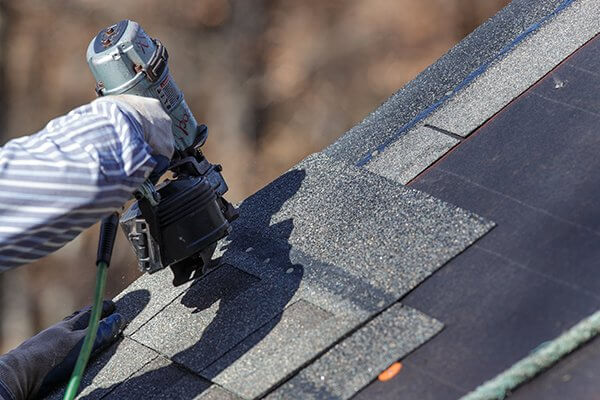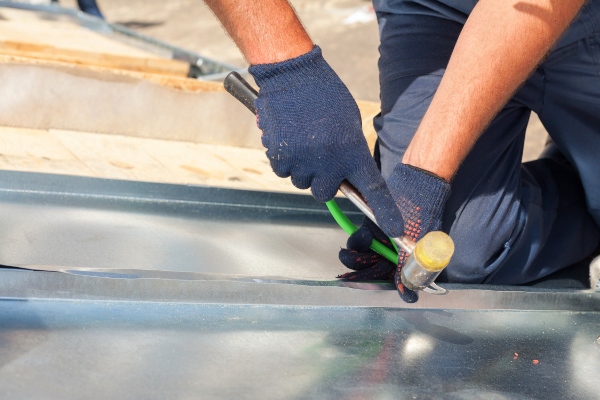What To Include In Your Roofing Estimate

As a contractor, you’ll find that estimates are a very important part of your job. They can help the customer better understand what they should expect from your services and how to best budget for the project. But budgets aren’t as simple as walking through a home and throwing out a number.
From materials needed to time spent on the job, roofers have plenty to think about when it comes to preparing a proper estimate. If you’re a roofing professional, here’s a look at what you need to include in your roofing estimate.
Are you looking for more roofing leads in your area? Sign up with CraftJack today to start receiving leads from homeowners near you.

What is an estimate?
If you’re a roofing pro, you’re likely familiar with estimates. They help customers understand the scope of the project, budget appropriately, and see how your business is different from competitors. A thorough and well-written estimate can explain the project in full to the customer, avoiding any surprises and making them more likely to hire you.
It’s important to note that providing an estimate is not a favor to the customer. An estimate will help to clarify project details and should always be provided as a part of your services.
Understand the Job
Before putting pen to paper and preparing the estimate, one of the first things you should do is to see the job in person and meet the customer. While it’s possible to receive some information over the phone, you probably can’t get a complete idea of what the job will require. As the expert, you may see some things that the customer will overlook when it comes to their roofing project.
Set up a time with the customer to go out and see the roofing project firsthand. It’s a good time to take measurements for yourself and get the specs you will need to create the most accurate estimate for the work. Ask the customer questions to clarify the work they want done and clarify any details that may be involved. Once you do this, you can begin preparing your written estimate.

What to Include
Now that you’ve seen the job, you can begin to write the roofing estimate. It’s a good idea to work with a template so that you can easily plug information in where you need it. Here are a few items you’ll want to include in your roofing estimate:
- Your contact information: Provide a few ways for the customer to contact you if they have questions, such as an email address and cell phone number.
- Summary of the project: This helps to give both you and the customer a clear understanding of what the roofing job will look like. You may also want to include any relevant dates here such as the commencement date or when it should be finished.
- Costs: Be sure to line item the estimated charges for the project.
- Payment schedule: Outline the way you’d like to be paid and when the funds are due.
- Guarantee of work: Provide your company policy on how things might be fixed in the case that there is an issue with the project once the job is complete.
- License, insurance, & other information:If you’re a member of any trade organizations or want to outline what license your roofing business has, be sure to list it in your estimate.
Calculate Costs
As noted above, you will need to share the approximate costs for the project. This is one of the most important parts of the estimate. However, there’s a lot to account for to ensure you’re presenting the most accurate estimate. Here are a few items you’ll want to include:
Demolition
Is the roof damaged or will there be items that need replacing? Demolition will take a great deal of labor from you and your employees and disposal costs can add to the expenses. Be sure to include this in the total costs.
Materials Needed
The roofing materials may be the largest cost for the homeowner, so it’s important to get this as accurate as possible. Sometimes, the homeowner may provide the measurements for you, but you may also have to measure the roof yourself. This information is important to properly calculate the roof size to get the most accurate estimate for materials needed.
Labor
Don’t forget to account for the work you and your employees are doing on the home. Include hourly rates and an estimation of how long the project will take. If you’re bidding out parts of the roofing job, be sure to factor in these costs as well.
Permit Costs
Often, roofing projects will require local permits. While the homeowner may be aware of these, you are the expert in this area. Research and know what permits are applicable. Include any costs for those permits in the estimate.

Guarantee of Work
Many contractors find it beneficial to include a guarantee of their work in an estimate. This helps put customer fears to rest by ensuring you’ll take care of any issues if problems are discovered once the job is complete.
Make Your Business Stand Out
Estimates are your time to shine, so don’t be afraid to show customers what makes you different from other contractors. While including information about your insurance Is helpful, you may also want to include any additional ways you’ve gone above and beyond for your customers. Have you completed any certifications? Are you a part of any roofing trade organizations? At the end of your estimate, including some additional info like this will help differentiate your roofing business from the rest.
Conclusion
An estimate is a crucial aspect of your job that can help you win over clients. Providing a well-written estimate will benefit your business by fostering clear communication between you and the customer. But roofing estimates don’t have to be rocket science. By just following the tips we talked about in this article, you’ll be on your way to creating a better roofing estimate for your customers.
Looking for more tips to help your roofing business grow? Read Business Tips For Roofing Contractors.



